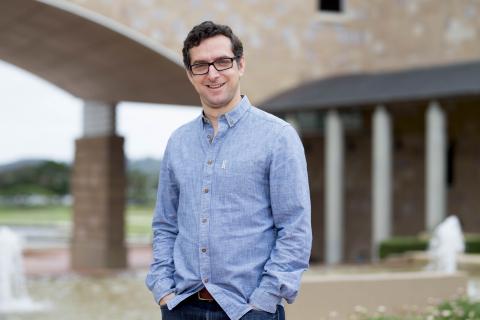
We are currently living in a golden age of screen production. Yet the Federal Government wants Netflix, Disney and the rest of the streamers to commit to a levy ensuring they spend at least 20 percent of their gross revenue on Australian productions.
On the surface, this might seem unnecessary, but is critical for Australian screen creatives and our national industry to thrive, and has the unanimous support of all Australian screen content makers. It should not be a controversial move, as this kind of regulation is in place in most countries, and similar style levies have traditionally been set with local Australian broadcasters. It’s why we currently have the Australian content on screen that we do.
We are at a key inflection point: if the legislation doesn’t pass, we will lose a once-in-a-generation opportunity to ensure genuinely Australian stories stay on our screens, and the chance to keep our successful screen talent in Australia to make those stories. A brain-drain in any industry is not good for the country, and it’s as much a financial issue as a cultural one.
What makes an Australian story Australian? Industry body Screen Producers Australia consider that any definition of Australian content should require that the intellectual property is owned by an Australian production business. Why is this important? So the profits feed back into the local industry instead of taken overseas, in order to be reinvested in Australian talent and stories.
This is not to say that there is not huge benefit to both the local industry and the Australian economy from international productions being made here. The doubling of the location offset announced in the Budget is amazing from the perspective of driving economic investment in Australia on a general level, but it is primarily building our screen service industry (and those industries that benefit from transient workforces, such as hotels) rather than our storytelling industry.
It’s a bit like the circus coming to town. We’ve been fortunate that the circus has come, and has stayed for a long time, but one day it will leave – and potentially take some of our best creative talent with them. If a screenwriter or director can’t get the opportunity here, they’ll have no choice but to go elsewhere, and that will reduce our ability to get Australian stories told and maintain a vibrant industry.
As unattractive as the word ‘quota’ sounds, it is necessary to ensure those benefitting from our industry also significantly contribute to its development. Unfortunately, often ‘doing the right thing’ has to be legislated: just look at the writers’ strike currently happening in Hollywood.
It was exciting to hear Federal Arts Minister Tony Burke make it clear in a speech to the industry on the Gold Coast earlier this month that he is committed to the quotas kicking in by July 1 next year. But there is still debate around the ‘how’ of its implementation and that’s where the government is going to need to word the policy very carefully. If it is crafted well (with no loopholes or definitions of ‘Australian’ that are too broad), it will be a gamechanger for Australian production.
As to be expected, there’s resistance from every streamer and broadcaster – essentially those that are required to pay, don’t want to pay. The arguments range from the policy being unnecessary because the industry is already vibrant, to the policy negatively impacting quality –- but these views do not reflect the wider industry.
These latest announcements are an incredible step in the right direction. Let’s hope they can be implemented to help the Gold Coast and Australia become the truly significant hubs of creative excellence we know they have the potential to be.
Dr Darren Paul Fisher is the Head of Film, Screen and Creative Media at Bond University

